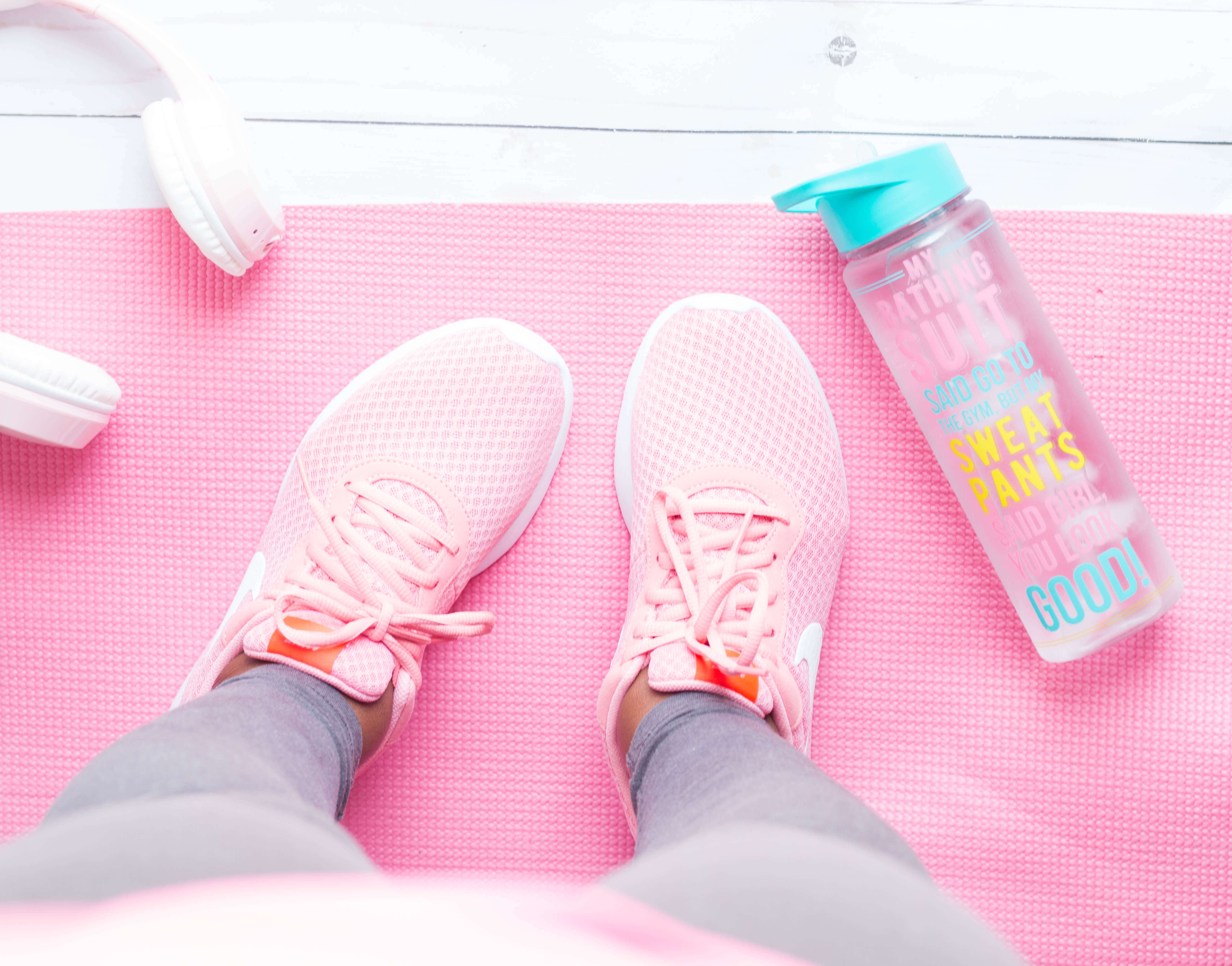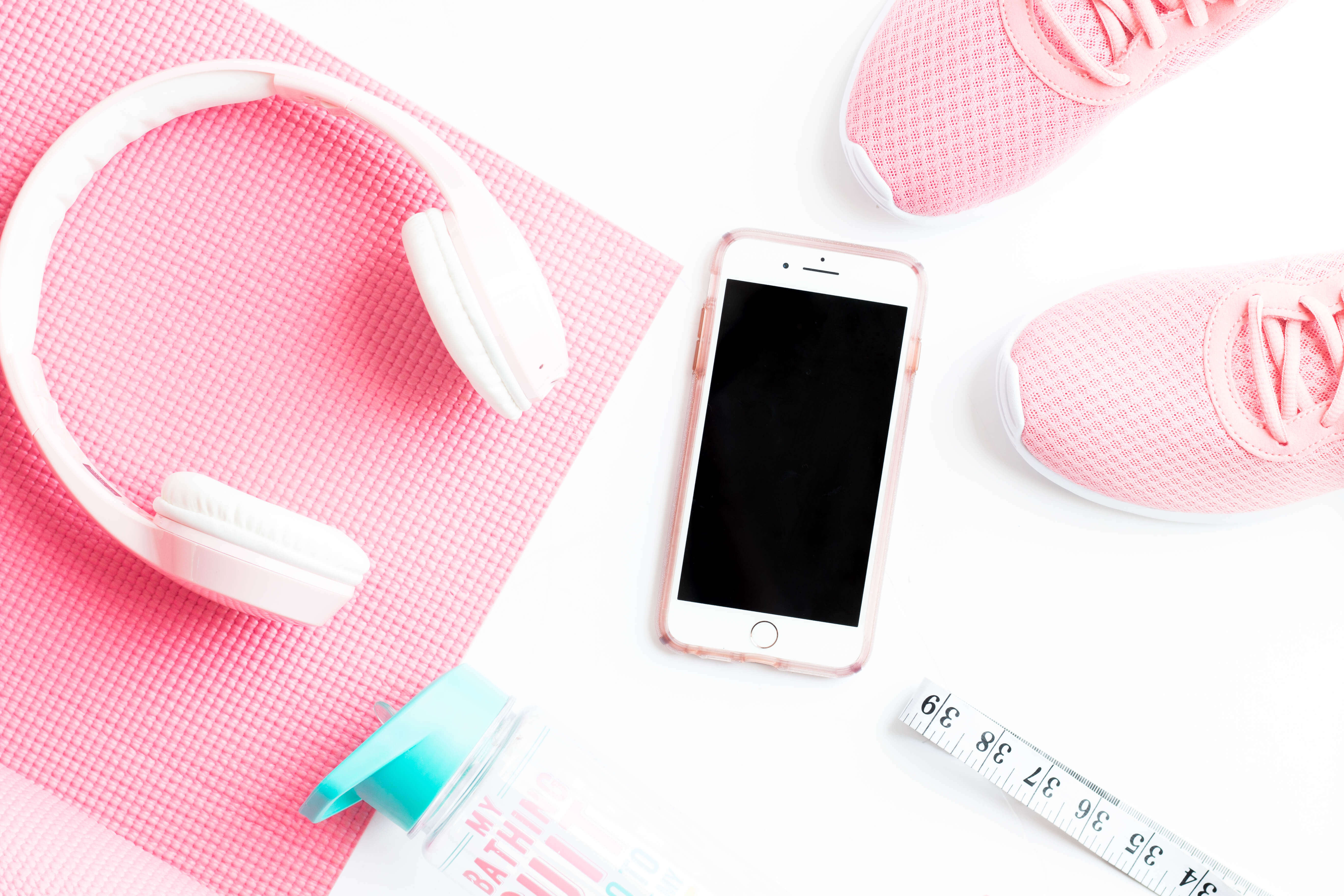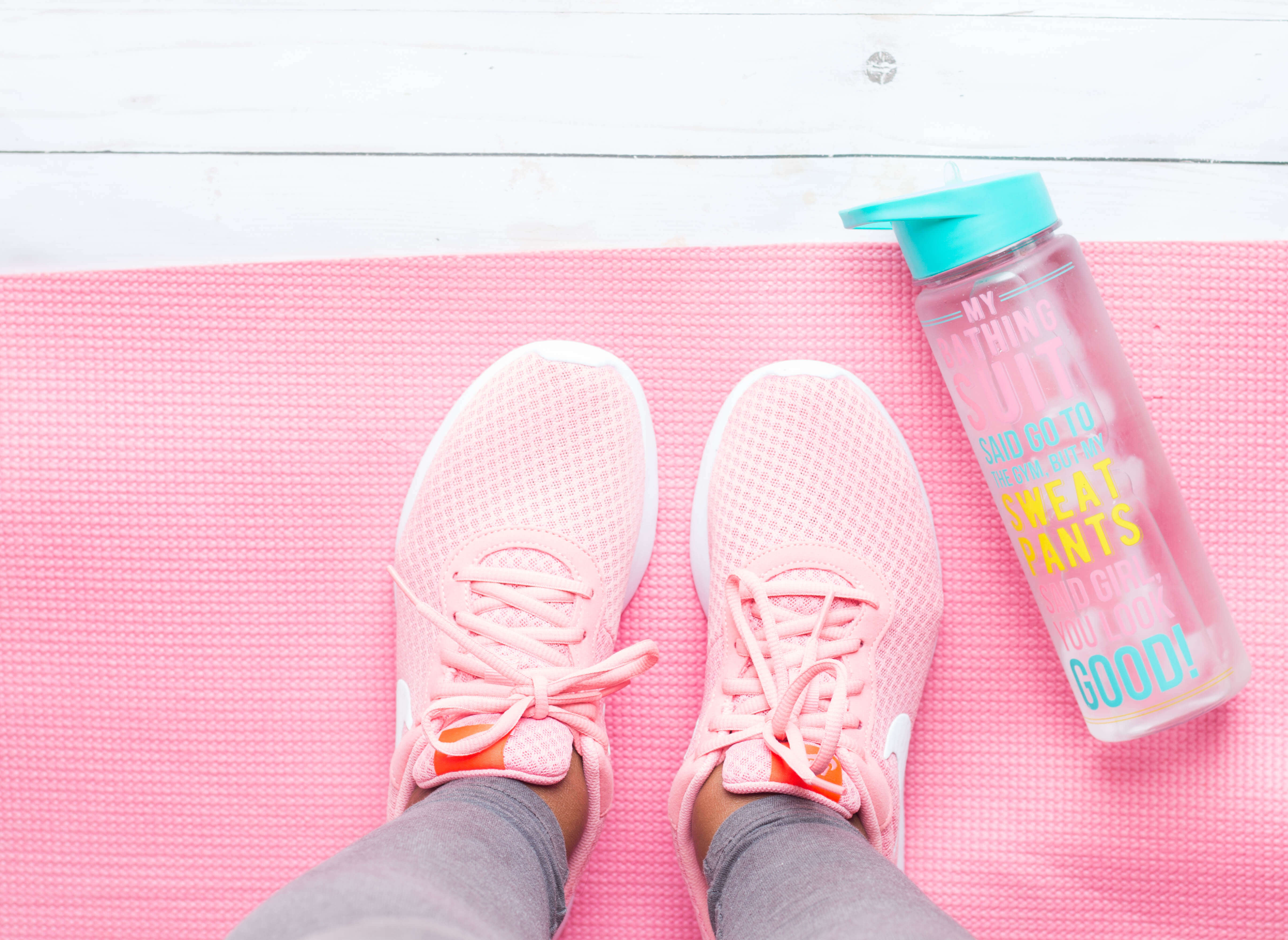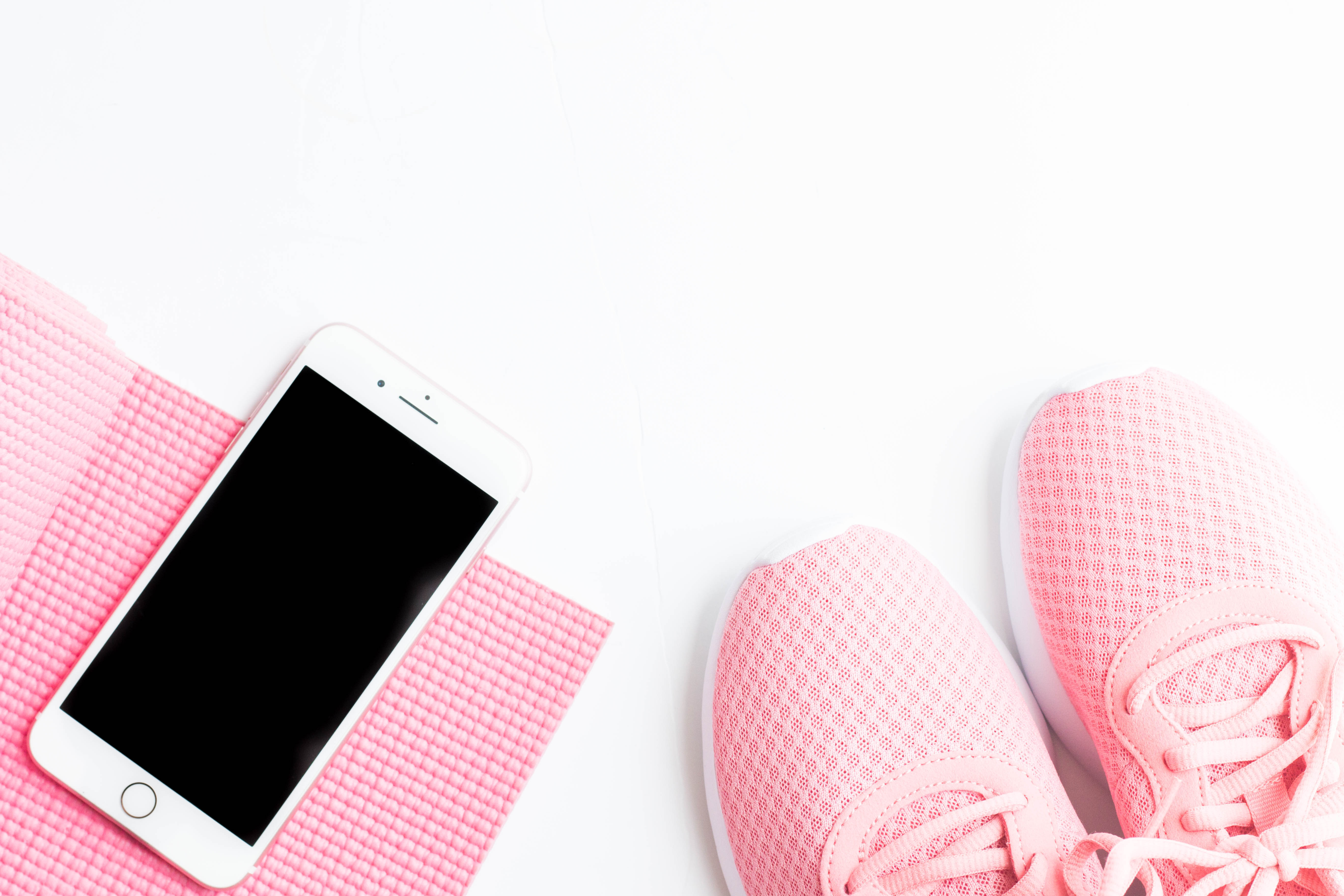In this episode of the Real Happy Mom Podcast, I am talking to Valeria from Do a Shot of Yoga all about sustainable self-care and yoga.
Valeria is a working mom of three and a stepmom to three more. She is a dog mom and a military wife.
Busy schedules are nothing new to her that is why she understands the challenge to make time for yourself.
Valeria is passionate about not just any self-care for moms, but sustainable self-care.
Whether you have one child, whether you have six it just adds in and there’s so much that we do for everybody else. At the end of the day, we can just feel like there’s just no time for us because we aren’t popping up in our own faces to say, hey, you need to take care of this or you need to get this done that’s just for you.
And by taking care, I don’t mean like bubble baths and pedicures. I’m talking about getting to the doctor for a checkup or getting any amount of restorative sleep, eating something that isn’t the cold discarded scrapings off a toddler’s plate or stale Cheerio’s.
Do you know what I mean? Like it’s the basics that we help everyone in our family to get. We go above and beyond for them, but for ourselves, we’re just letting everything go and that’s not sustainable for us. It’s not sustainable for the people that we love.
How many times have you made sure that your kids had all of their annual doctor appointments before scheduling one for yourself?
This is what Valeria means about self-care. Taking care of yourself with the basics.
Valeria uses a very unique term that I haven’t heard much to describe self-care and that’s sustainable self-care.

What is sustainable self-care?
Valeria starts by showing how you can pretty much do anything for five days when you set your mind to it.
When given the challenge to drink water or eat a certain diet, you will do well for the first few days.
Then something happens around day 4 and 5. Your mind starts to feel the end near and things may come up to distract you.
Definitely around day 6 or 7 is when you start to feel yourself going back and doing the things that you did before. Or you’ve completely forgotten about the challenge.
Even though the challenge was doing great things for your body or your mind, it ends up becoming a distant memory because of all of the life demands.
So by sustainable self-care, I mean identifying and implementing a combination of behaviors that are right for your personality, your schedule and your personal circumstances that all add up to increased energy and focus and better physical health and intentionality in your relationships. And when this happens, when we can do this on a regular basis our stress levels naturally decrease. And that haze of overwhelm lifts, which in turn gives us the opportunity to continue to identify and acknowledge areas of our life that require our attention and to create behavior and perspective shifts that will allow us to pivot and adapt positively so that we were continually improving our quality of life rather than making choices that potentially could make it worse.
Sustainable self-care is not a one size fits all. You have to take into account your weekly schedule, not your ideal weekly schedule.
Also, identifying when you tend to have high stress and when you feel the highest energy as well as low energy.
Once you’ve done this, you can begin to identify small areas of your life that you can slowly begin to change.

Make yoga a part of your sustainable self-care plan
One thing that you can implement into your sustainable self-care plan is yoga.
Valeria is a yoga instructor that has dedicated many hours to yoga and understands that there many different types of yoga that can provide great benefits.
People are always coming up with new styles of yoga in a way to reach different people who may or may not have thought of it before. And honestly the reason why all of my sustainable self care strategy is yoga based is because it’s a low risk, high yield approach to physical, mental and emotional health management that is accessible to every body. And by that I mean it does not matter what body you are living in. You can do some form of yoga and you will see benefits.
Yoga for stress management
So what types of benefits is she talking about?
First, there is generalized stress management. If you are suffering from anxiety, trauma, depression or chronic stress, your initial reaction tends to be a more exaggerated response to stress.
As a result, your actions may be exaggerated and cause you to make a choice that only perpetuates or complicate your situation.
When you practice yoga, you bring your stress levels down so that when that unavoidable stressor comes the stress response has time to grow.
So when someone is taking forever to check out at the grocery line or someone cuts you off in traffic you aren’t as easily agitated because you have reduced stress levels.

Yoga for pain management
Secondly, yoga can help with pain management. There are studies that have shown that with regular yoga practice you decrease the perception of stress.
This, in turn, decreases the perceived stress that’s connected to pain. So your perception of pain lowers when your perception of stress is lowered.
Individuals who are dealing with chronic diseases like fibromyalgia, diabetes, hypertension and even chemotherapy were found to have higher thresholds for their regular pain after regular yoga practice.
Yoga for hypertension
Yoga can also help with reducing hypertension.
In a 2016 study in The Experimental and Clinical Endocrinology and Diabetes Journal, identified a 10 mg of reduction in systolic and about 8mg and diastolic blood pressure among participants when it comes to cancer survivors and chemo treatments. [source]
A simple 10 minute yoga practice done in combination with standard diabetes care with glucose control and a focus on cardiovascular health was shown to decrease heart rate by 18% and diastolic blood pressure by 29% in seriously ill patients and this was a recent study. It’s just 10 minutes of a seated yoga practice. This is not strenuous. This is not a huge part of your day and positive results. We’re seeing hypertension and multiple studies. The short term practice of yoga was found to have an antihypertensive effect as well as improving overall quality of life.

Yoga for cancer patients
A 2015 study found that yoga practice has a positive impact on functional capacity and quality of life in breast cancer treatment participants and breast cancer survivors. [source]
Another study published in the Supportive Care in Cancer Journal in 2017 found that yoga practice improved quality of life and supported consistent improvement in psychological outcomes like depression, anxiety, distress. [source]
A recent study showed that a short term yoga practice was shown to have a positive impact on heart rate variability. [source]
There are so many benefits of yoga. Yoga only works when you are consistently practicing it every day.
This is the biggest issue that we face as busy, overwhelmed moms is we don’t give ourselves even that regular 10 minutes a day to just turn inward and find whatever our yoga practice looks like for that day. And if we did, we could create volumes of change in our lives.

Steps to get started with yoga
So you are ready to start incorporating yoga into your sustainable self-care routine. You are probably wondering where to start.
The very first step is that yoga is a complementary therapy, which means that it is not a cure for anything. It is not a standalone treatment.
If you have a diagnosable medical condition or mental health disorder, you have to start by talking to your doctor … you discuss different types of yoga if they have any understanding of it or at the very least get started on your own medical regimen with a supervising medical professional who was telling you about your medications and keeping up with any tests that you need to have done.
And giving you certain things that you may need to avoid if you have an injury or a chronic pain issue or your therapist. If you’re talking about mental health and most cases for mental health, they’ll say yoga all day, but you never know how this combines with medical issues and you just want to start off on the safe foot next based on what your doctor is telling you.

Talk to your doctor first
Because there are so many different styles of yoga, you have to be careful and choose the type of yoga that is best for you. For instance, if you have a heart condition you don’t want to start doing power yoga.
Speak with your doctor before getting started.
Start experimenting
Next, start experimenting. There are so many free classes on Youtube. Try searching for “gentle” or “beginner yoga” to get started. Valeria even suggests Yin yoga because you stay in one posture and then allow gravity to do the work.
Find a community
Once you have found a type of yoga that you are practicing, find a community.
It is so easy to get excited and then stop after a few days. Finding a community will help keep you motivated and accountable.
It would be great if you could attend classes and physically be apart of the community. If you can’t, you can definitely join an online community and get the same benefits.

Get inspiration
You can find inspiration on Instagram. But Valeria cautions not try everything that you see.
Don’t try to do what you see a lot of these people do because a lot of what they’re doing is not safe. And it isn’t the practice of yoga, it’s the performance of yoga, which is different, but it’s very pretty
Work it into your schedule
Next, you want to work on your schedule and figure out how you are going to incorporate yoga into your daily and weekly schedule.
Track your schedule for a week. Then find the pockets of time that you can start incorporating yoga on a daily basis.
Get Do a Shot of Yoga subscription box
You need some inspiration to keep you going? Check out Valeria’s subscription box, Do a Shot of Yoga.
You will get inspiration, be able to connect with an online community, and anytime support from your peers and a yoga expert.
You get information about different ways to incorporate yoga into your life and so that might mean learning about a new style of yoga each month, learning a new way to practice sustainable self-care, like ethical and positive eating, mindfulness practice, meditation.

To learn more about Valeria’s subscription box, head over to here and use the promo code REALHAPPY10 to get 10% off.
You can also check her out on Instagram and on Facebook.

Key takeaways:
- Sustainable self-care is identifying and implementing a combination of behaviors that are right for your personality, your schedule and your personal circumstances that all add up to increased energy and focus and better physical health and intentionality in your relationships
- Implement yoga in your sustainable self-care plan. Yoga has so many benefits for your mind, body, and spirit. But yoga is not a standalone treatment.
- Yoga works when you practice yoga consistently every day.
- Before implementing yoga, talk to your doctor. Then experiment with the different types of yoga. Find a community and work yoga into your daily and weekly schedule.
Links mentioned in this episode:
Subscribe & Review in iTunes
Have you subscribed to the Real Happy Mom podcast? If not, I’m encouraging you to do it today.
I don’t want you to miss any upcoming episodes. I am planning on adding some bonus episodes that you won’t find on this website and if you’re not subscribed you might miss out on those. Click here to subscribe in iTunes!
I would be so happy and grateful if you left me a review on iTunes too. Reviews help iTunes to know that this is a podcast for other moms so that other moms can find this podcast. Plus, it really makes my day to read the reviews.
Just click here to review, select “Ratings and Reviews” and “Write a Review” and let me know what your favorite part of the podcast is. Thanks in advance!
Don’t have iTunes? You can subscribe to the podcast Google Podcast, Anchor, Spotify, Breaker, Castbox, Overcast, RadioPublic, and Stitcher.
Sources
2016. Impact of a 10 minute Seated Yoga Practice in the Management of Diabetes. Journal of Yoga & Physical Therapy.
2017. Impact of Yoga on Blood Pressure and Quality of Life in Patients with Hypertension. International Journal of Pharmaceutical and Clinical Research.
2016. The Efficacy and Safety of Yoga in Managing Hypertension. Experimental and Clinical Endocrinology & Diabetes.
2017. Review of yoga therapy during cancer treatment. Supportive Care in Cancer.
2015. Do Yoga and Aerobic Exercise Training Have Impact on Functional Capacity, Fatigue, Peripheral Muscle Strength, and Quality of Life in Breast Cancer Survivors? Integrative Cancer Therapies.
2016. Impact of short-term practice of yoga on heart rate variability. International Journal of Yoga.

[…] your body moving however you like – yoga, walking, dancing, […]